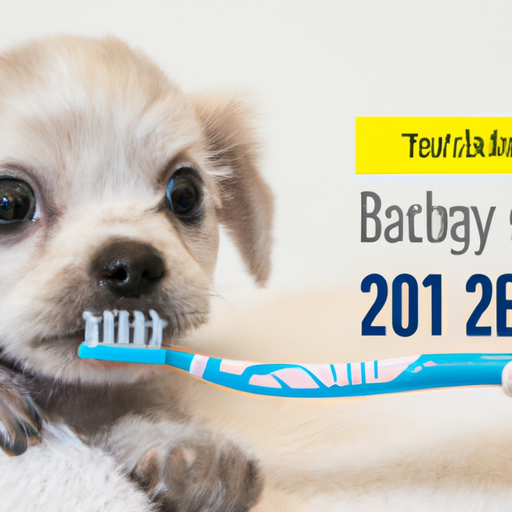Whether you are a veteran dog owner or a first-time puppy parent, understanding your young furry friend’s dental progression is essential. In the first few months of their life, dogs go through a process of losing their baby teeth, similar to humans. So, when precisely does this happen?
Table of Contents
- Understanding Puppy Teething
- The Timeline: When Do Puppies Lose Their Teeth?
- Signs of Teething
- What To Do When Your Puppy Is Teething
- FAQs
Key Takeaways
- Puppies are born toothless, with their deciduous or “baby” teeth starting to appear at around 2-4 weeks.
- Puppies’ baby teeth start to fall out between 12 to 16 weeks of age.
- Teething can cause discomfort and behavioral changes in your puppy.
- Providing safe chew toys and maintaining oral hygiene can help your puppy during this period.
Understanding Puppy Teething
Just like human infants, puppies are born toothless. Their deciduous or “baby” teeth start to appear at around 2-4 weeks of age. These teeth are temporary and will eventually fall out to make way for their permanent adult teeth.
The Timeline: When Do Puppies Lose Their Teeth?
By the time your puppy is about 12 to 16 weeks old, they will start losing their baby teeth. This process is known as “teething”. Their baby teeth will fall out to make room for about 42 adult teeth.
Here’s a general timeline:
- 2-4 weeks: Deciduous teeth start to appear.
- 12-16 weeks: Puppies start losing their baby teeth, starting with the incisors.
- 5-6 months: Most puppies have all their adult teeth.
This timeline can vary slightly depending on the breed and individual growth rate of the puppy.
Signs of Teething
Teething can be a tough time for your puppy. Some common signs of teething include:
- Increased chewing: Your puppy may chew on objects more than usual to alleviate the discomfort.
- Bleeding gums: You might notice a little blood on their toys.
- Missing teeth: You might notice gaps in your puppy’s mouth where teeth have fallen out.
It’s important to monitor your puppy’s behavior during this period. Excessive discomfort or any drastic changes in behavior should warrant a visit to the vet.
What To Do When Your Puppy Is Teething
Teething can be an uncomfortable process for your puppy. Here are some ways you can help:
- Provide safe chew toys: Chewing can help alleviate the discomfort of teething. Ensure the toys are safe and appropriate for your puppy’s size and age. Check out this guide from the American Kennel Club for more information.
- Maintain oral hygiene: Regular brushing with vet-approved toothpaste can help keep your puppy’s mouth clean.
- Regular vet check-ups: Regular visits to the vet can help monitor your puppy’s dental health progress.
Additional resources on dog oral health can be found on sites like One Top Dog. They provide a wealth of information on topics such as puppy care, dog health, and oral hygiene for dogs.
FAQs
Q: Can teething cause my puppy to lose appetite?
A: Yes, the discomfort of teething can sometimes cause puppies to eat less than usual. If your puppy’s loss of appetite is severe or prolonged, it’s best to consult a vet.
Q: What should I do if a baby tooth doesn’t fall out?
A: If a baby tooth doesn’t fall out and the adult tooth is emerging, it’s best to consult your vet. The baby tooth may need to be extracted to prevent future dental problems.
Q: Can I brush my puppy’s teeth during teething?
A: Yes, maintaining oral hygiene is important during teething. Use a soft toothbrush and vet-approved toothpaste.
Understanding your puppy’s dental progression is part of responsible pet ownership. By being aware of when puppies lose their baby teeth and how to help them during this time, you can ensure your furry friend grows up healthy and happy!



